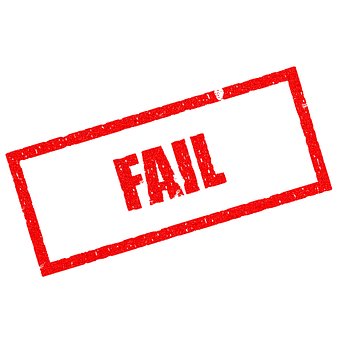A number of years ago, while working at a large, successful software company, I took on the role of project leader for what I expected to be a fun, challenging, high-value-add technology project. My sponsors for the project were the chief technology officer and the chief information officer, and the effort was going to save the company $35M in cost avoidance. The technical challenge (untangling a root-ball of legacy web servers and upgrading or decommissioning each one) was the nut to crack, I told myself. With sponsorship from the top and an undeniably strong business case, I blithely sailed into the project.
 You know what's coming, right? Things didn't go as I expected. Two things saved the project from being an unmitigated disaster: first, it was cancelled while still in the early planning phase, and second, I was able to learn some very important lessons about project management, and about life. In case they might be helpful to you too, here they are.
You know what's coming, right? Things didn't go as I expected. Two things saved the project from being an unmitigated disaster: first, it was cancelled while still in the early planning phase, and second, I was able to learn some very important lessons about project management, and about life. In case they might be helpful to you too, here they are.
The first sign that things weren't going to go smoothly was when my key partner, who was in another organization, didn't engage. He didn't respond to emails, he didn't return phone calls, he cancelled meetings. Then, he told me point blank that "the project isn't a priority for my team". But, but but... I sputtered in my head. Your executive is a sponsor! Of course it's a priority, because your sponsor said so! Lesson number one: Do your own stakeholder analysis, even if you think the sponsor has already smoothed the way. Get to know your key players early in the project and learn what's important to them. I might have saved us all significant grief if I had done so.
Lesson number two came swiftly on the heels of lesson number one: It's never too early to do a risk assessment. Because my initial judgment was that the technical arena was going to be the biggest challenge, I planned risk assessment after the high-level technical plan was in place. And yet, if I had taken a look at the broader project landscape and noted that partner engagement was a critical success factor, I might have done that stakeholder analysis I missed, and therefore been alerted to escalate sooner and with more success.
And speaking of escalation, my third lesson was Escalate with facts. I held back from bringing executive leadership into the conflict because I feared making my partner look bad (he wasn't following his exec's lead, after all), and making myself look unskilled (how come I can't persuade effectively?). I got hung up in the emotion of it, rather than staying neutral and simply reporting on results: emails and phone calls not returned, meetings missed.
What I didn't know at the time, even though my partner's "it's not a priority" comment should have clued me in, was that his organization was working through the growing pains of being in high demand and under-staffed. His leadership hadn't yet put in place a functional prioritization mechanism, and my project happened to be something the execs wanted but the rank-and-file couldn't deliver. Hence the fourth lesson: Keep the big picture in mind. It's not always about your project; in this case, my project and its difficulty getting traction put a spotlight on a major business process gap. From a bigger picture perspective, my project's failure was an important step in the maturation of the company; a success!
And finally, when the project was cancelled and I felt responsible and upset, I had the opportunity to learn one last lesson: Don't take it personally. Sure, there were things I could have done to have failed faster, with less wasted time and political capital, but in the end, I did my best with what I knew at the time. The sad truth is that projects don't always succeed. My project's failure did not mean I was a failure. It meant I was in there trying and learning, and isn't that what life's really all about?
What lessons have you learned from project failures? I'd love to hear your stories in the comments below. And if you'd like help turning your project failures into learning opportunities, or want to take the next step toward project management mastery for yourself or your organization, CW Training and Consulting specializes in custom, hands–on, interactive project and process management workshops. Contact us and we'll help you find the right learning solution for you and your business.
